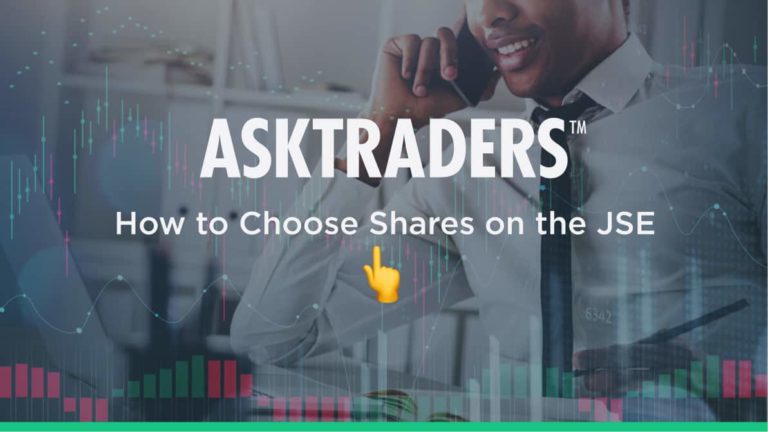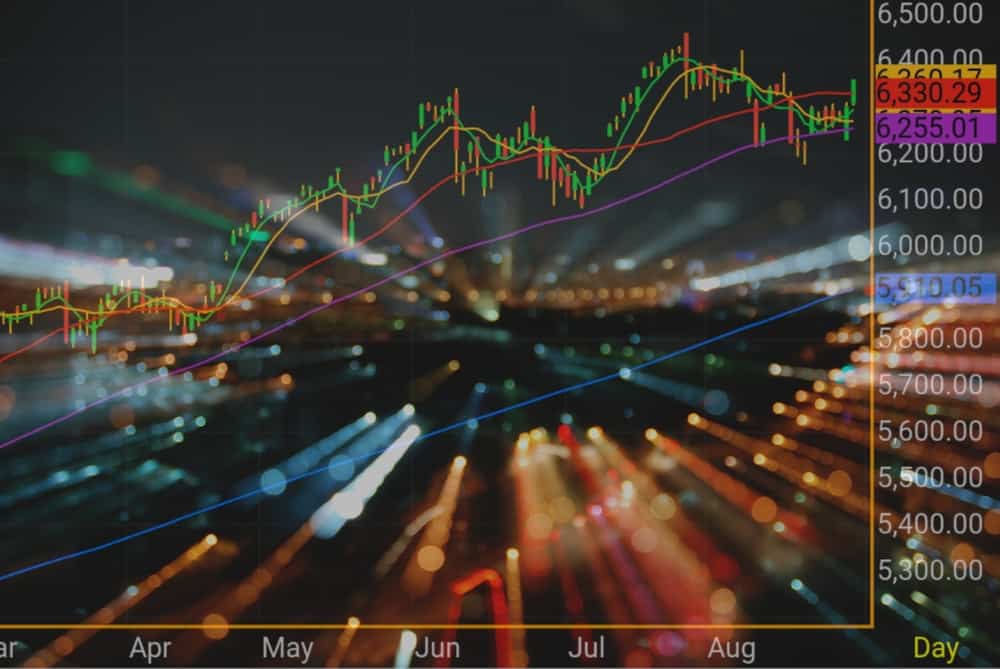
Overview of the JSE
The main and secondary capital markets on the Johannesburg Stock Exchange (“JSE”) are safe and efficient, and they cover a wide variety of assets. The JSE is the biggest stock exchange on the African continent and the seventeenth largest in the world by market capitalization.
The JSE began in 1887, during the height of the first South African gold rush. After the first financial market regulation was approved in 1947, JSE joined the World Federation of Exchanges in 1963 and switched to an electronic trading system in the early 1990s.

How to Choose Shares on the JSE
Long-term investors who have a record of accomplishment and success, such as Warren Buffett, tend to dominate the market by selecting companies with the greatest growth potential. Stock selection, whether for a long-term portfolio or day trading, may be done in a variety of ways.
Individual characteristics, such as trading experience and risk tolerance, might play a role in determining which stocks an investor or trader should choose.
These considerations aid in determining the investing criteria for a stock selection approach. We discover a few strategies that you can use to help you select individual stocks for your investment portfolio.
Look for Companies that you understand
As an investor, you have an advantage over the competition because of your familiarity with the company and its operations and the possibilities and threats it faces.
Successful stock picking requires an accurate assessment of a company's prospects. One's confidence in a company's future is diminished if one does not know the firm well.
You must know the ins and outs of a company's operations and financials before putting your money into it.
Consider Trading the News or choose Story Stocks
Companies with “story stocks” have stock prices that are predicated on a widespread belief in the company's prospects for future success.
In the tech industry, this could depend on whether the firm can develop a game-changing innovation. Investors would need to see substantial revenue gains to keep their faith in these stocks since their earnings either do not exist or do not come close to justifying their price.
Therefore, they are very risky, but also provide investors with substantial upside potential. For successful news trading, it is essential to be abreast of global events, especially those with widespread financial repercussions, such as shifts in interest rates and currency valuations.
It is crucial to get a solid grasp of how different stocks will respond to various events since the same news articles could affect different companies and sectors in diverse ways.

Carry out a Technical Analysis
One of the most used methods for selecting stocks for day trading is technical analysis.
Technical analysis is the study of price charts and indicators to foretell the direction of a market's price action. Price action follows established patterns rather than being random, and these trends tend to repeat themselves over time.
These are the three basic assumptions of the efficient market hypothesis. A trader's entrance and exit locations might be informed by technical indicators. Breakout stocks, for instance, are those that break out of the range in which the stock's price has been trading for some time.
The market's reaction to a stock's price after it breaks a resistance level is typically to raise its price, whereas the opposite is true when a stock's price breaks a support level.
Candlestick charts play a significant role in technical analysis because they may foretell future price moves based on existing ones.
Check out Analyst Ratings
Expectations for the next earnings report are often issued by analysts, market pundits, and corporate insiders. The stock price of a firm is affected by how positive or negative analysts are about its prospects in the weeks leading up to its earnings report.
A stock price drop may be expected if experts predict a poor set of results, such as a decline of 5% in profits year over year. Traders must keep an eye on announcement schedules and be ready to evaluate earnings reports as soon as they are issued, since share price swings may occur extremely fast following a startling set of results.
View the Company Earnings
Stocks that have been overbought or oversold may be found by using both leading and lagging indicators. The reversal of a stock's price trend may be imminent if momentum in the stock price suddenly begins to weaken.
For instance, if a stock's price has been going up for 14 days in a row but the rate of gain is decreasing, demand could be waning, and the price might drop. Indicators of sentiment may also be used to assess how investors feel about particular securities or the market overall.
In most cases, when there is an optimistic outlook, prices will go up. Many investors use contrarian trading tactics based on market emotion, such as buying low when investors are pessimistic about the market and selling high when bulls are in control.
Indicators of market mood and strategic positioning may be used to determine when to enter and quit a trade. Both technical and fundamental measures of positioning and mood exist.
Use Stock Signals and Trading Alerts

Alerts may also be configured to purchase or sell stocks based on fundamental or technical research. As such, they might serve as a useful reminder to take advantage of favourable market conditions.
These trade notifications can be set up in your trading platform; for further information, see the relevant help page.
Carry out a Fundamental Analysis
The intrinsic or relative value of a firm may be calculated via fundamental analysis by considering qualitative elements like macroeconomic and microeconomic aspects.
Economic analysis, industry analysis, and corporate analysis are its three pillars.
Metrics like profits and dividends are frequently more relevant for value investors than growth investors, and hence might be the focus of certain fundamental research indicators. Buffett bases his investment decisions on the basic analysis of the Benjamin Graham school of value investing.
The market share of a certain firm is an example of a metric used in industry analysis. Furthermore, economic indices such as gross domestic product (GDP), inflation rates, and interest rates may be used to forecast the future worth of a corporation.
Make use of a Stock Screener
Stock scanners, also known as stock screeners, are trading aids that scour markets for investment opportunities depending on parameters set by the trader. Such tools could shorten the time it takes to find suitable stocks.
Due diligence is required when choosing a stock screener because of the wide variety of features and functionalities available.
Consider Stocks on the JSE with Increasing Volume and Price
A stock's increasing volume might be a sign that demand is on the rise. Parallel increases in trading volume and the price of a stock could indicate that bullish market sentiment is gaining momentum.
However, the inverse is also true. When trading volumes fall as the stock price rises, it might be a precursor of a reversal in trend.
Moreover, if volumes are rising despite the price decline, prices could be on the verge of a new low. A bottom may be near if declining prices are followed by lower volumes.
How to choose the Right Share Broker in South Africa

South African traders could not have picked a more favourable time to enter the investment market than the present. Competition among online brokers is high, which means costs are dropping down and features are being boosted.
Those interested in trading global financial instruments could choose from a wide variety of online forex and CFD brokers. However, there are several factors to consider when choosing a broker and we will go through them here.
Commission Charges
Individual stocks, options, mutual funds, exchange-traded funds, and bonds are the main investment types offered by brokers. Some will also provide exposure to the forex market, futures trading, and cryptocurrency exchanges.
Both the suitability of the broker's offerings to your investment requirements and the fees you must pay is dependent on the investments the broker has available. You should pay close attention to the commissions that are involved with the investments you like.
Overall Reliability
There is a diverse selection of brokers available. Several have been popular for many years, while others have just recently emerged.
That does not imply they cannot be trusted, but if they are managing transactions for clients, they are members of a self-regulatory organization like the Financial Conduct Authority (FCA), the Financial Sector Conduct Authority (FSCA) and other regulators, or subject to additional oversight.
Account Fees
While it could be impossible to eliminate account fees, they may be kept to a minimum. To withdraw funds or investments, or to close your account, most brokers will assess a fee. When switching brokers, your new firm could pay some or all your transfer expenses.
If a broker does not charge them, or if you do not use their optional services, you could avoid paying most additional costs.
Annual costs, inactivity fees, trading platform subscriptions, and additional charges for research or data are all examples of the kind of expenses you should be aware of.
Pricing and Execution on Trades
Cost is less of a factor today, leading to commission-free transactions becoming the norm at most brokerages.
However, you should consider the brokerage's position on the controversial practice of paying for order flow and how much it costs before making a final decision.
This is especially true if you are an active trader who wants their deal completed at the best price possible, even if it means a difference of a few cents.
Additional Tools, Educational Materials, and Features
Look for a brokerage that provides free educational tools like live webinars, detailed how-to instructions, video tutorials, glossaries, and more if you are just starting in the investment world.
You should also look at the broker's commitment to educating its customers about the inherent hazards of more complex trading tactics like options.

Conclusion
Both inexperienced investors and seasoned pros face this conundrum when faced with so many options. Even though the JSE does not offer as many listings as major exchanges such as NYSE, South African traders must still practise caution in selecting the right stocks for their portfolios.




